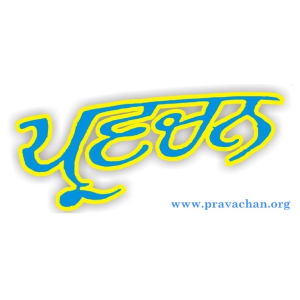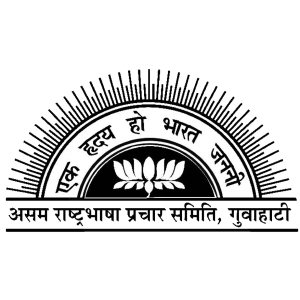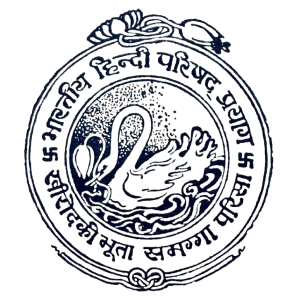
Sri Guru Gobind Singh College of Commerce, founded in 1984 is a premier institute of the University of Delhi specializing in Commerce, Economics, Business Studies, and Computer Science. It has been accredited with an ‘A++’ grade by National Assessment and Accreditation Council and has an NIRF Ranking of #39 in the year 2024.
The College regularly organizes Seminars, Conferences, Workshops, and Faculty Development Programmes which contribute to the holistic pursuit of education in terms of inquisitive research orientation, analytical rigor, and quantitative skill enhancement of both the student and teacher fraternity
The seminar committee of Sri Guru Gobind Singh College of Commerce was started with an objective to organize academic seminars, conferences, and conventions to boost the academic culture amongst the students and teachers. The seminar committee continues its commitment by organizing international conventions and conferences biannually on trending topics like sustainability, financial ecosystems, etc. Biennial Conventions witnesses key decision makers and policy makers in the government sector with Industrialists, Corporates and Entrepreneurs, whereas, biennial conferences are aimed at encouraging primary researchers and call for research papers. Besides this the committee organizes various national and international level seminars yearly.
The seminar committee at Sri Guru Gobind Singh College of Commerce is organizing its first winter language conference on the topic “Language & Literature in the Digital Era” covering three languages i.e. English, Hindi, and Punjabi on November 8, 2024, Friday in offline mode. This is a forum for specialists from three languages—English, Hindi, and Punjabi—to explore cultural changes seen by society in the virtual world, as well as challenges and opportunities triggered by the digital world.
Twentieth century is referred to as the century of science and technology. The digital revolution that took place in this century has transformed the way of thinking of people while profoundly affecting their attitude. During the eighth decade of last century, the digital revolution caused by Internet in India had an intense impact on the entire socio-cultural and economic structure of the country. Government of India launched the Digital India initiative in 2015, which aimed to make increased services available to the common people through use of electronic means and to reduce the gap between the Government and people. With technological advancements, there has been a significant push towards innovation and progress. The digital world has not only impacted the way we live but has also influenced our society and culture in many ways. This transformation has been evident in various disciplines, particularly in literature and language. New digital forms have emerged because of technological advancements providing the readers with so many more ways than ever before to access and enjoy literature. A watershed moment in literary history has come with the introduction of electronic books or e-books. The advent of digital literacy has made English Literature more accessible to a wider audience through E-books, audio books and online platforms for discussion.
The proliferation of digital technology is allowing both, readers and writers to enter a more informed discourse, thereby enabling better understanding of culture and its influence on our ability to communicate or replicate ideas. Despite these positive changes, there are certain challenges that our society faces today.
Firstly, the increasing use of English in digital communication has overshadowed other regional languages.
Secondly, the era of digital technology has resulted in a substantial change brought about by the digital revolution.
Thirdly, the digital era has brought about profound changes in our language altering not just the way we speak and write but also how we express emotions, share information and connect with one another. The linguistic landscape is evolving continuously, and it is important to embrace the changes and appreciate the ways in which technology enriches our communication.
Fourthly, while there are benefits of technology, social disruption is being caused by its misuse impacting the society and its health. Recognizing and adapting to the challenges posed by the digital age is the key to ensuring that language and literature remain a central force in the cultural and intellectual landscape in the 21st century.
In the face of these questions, a national conference on ‘Language and Literature in the Digital Era’ is being organized (in English, Hindi, and Punjabi). In this conference, an effort will be made to shed light on the state and condition of languages and literature in the age of digital revolution through the suggestions presented by the experts.
समय की गति और बदलती जीवन शैली ने डिजिटल दुनिया के अस्तित्व निर्माण में महत्वपूर्ण भूमिका निभाई है। डिजिटल क्रांति ने काल्पनिक संसार को वास्तविकता में परिवर्तित कर असंभव को संभव बनाया है। भारत सरकार ने भी इसके महत्व को समझते हुए “डिजिटल इंडिया' अभियान का आरंभ किया। जिसका मुख्य उद्देश्य था 'बिना कागज का प्रयोग किए सरकारी सेवाएं जनता तक पहुँचना'। इससे स्थानीय भाषाओं के तकनीकी विकास की बात ने भी जोर पकड़ा और आज इस क्षेत्र में विकास कार्य प्रगति पर है। विज्ञान और प्रौद्योगिकी से नव-निर्मित इस डिजिटल दुनिया ने जहां दूरियों को घटाया और समय को बचाने के कई यत्न किए वहीं इसके कुछ अन्य पहलुओं से आंख मूंद कर किनारा नहीं किया जा. सकता। यह सच है कि आज की सदी हमें बहुत सी सुविधाएं प्रदान करती है परंतु इस बात से भी इनकार नहीं किया जा सकता कि डिजिटल दुनिया ने भी हमारे समाज और संस्कृति को गहराई से प्रभावित किया है। समाज व संस्कृति के बदलाव का प्रभाव भाषा व साहित्य पर प्रत्यक्ष ही है। आज साहित्य-लेखन की विषय वस्तु, सम्बेदना और शैली में बदलाव देखा जा सकता है। डिजिटल युग में भाषा के सरलीकरण की प्रक्रिया में स्थानीय भाषाओं के न जाने कितने शब्द रोज मर रहे हैं। सांकेतिक भाषा का चलन और ई पुस्तक व सामग्री वर्तमान विद्यार्थियों की जीवनी शैली का हिस्सा है। प्रत्यक्ष रूप से पुस्तकों से अध्ययन करने की बजाय ई पुस्तकों का प्रचलन बढ़ा है। डिजिटल युग ने विभिन्न भाषाओं को समझना आसान बनाया है तो भाषा की मूल संरचना भी उससे प्रभावित हुई है। हिंदी भाषा की वैज्ञानिकता को समझते हुए कंप्यूटर के लिए उसे उपयुक्त भाषा का दर्जा दिया गया है परन्तु यह दुर्भाग्य है कि हमारा समाज आज स्थानीय भाषाओं को कमतर आंकता है। हालाँकि वर्तमान भारत सरकार हिंदी व स्थानीय भाषाओँ की डिजिटल-उन्नति के लिए कमर कसे हुए है। जमीनी स्तर पर देखा जाए तो स्वयं स्थानीय भाषा प्रयोक्ता अपनी राजभाषा व मातृभाषा के प्रति गर्व का भाव रख उसका प्रयोग करे तो कुछ अच्छे परिणाम देखें जा सकते हैं। विभिन्न सरकारी व गैर सरकारी कार्यालयों में तकनीकी रूप से भी राजभाषा में कार्य करने पर जोर दिया गया है। वर्चुअल साहित्य से कुछ ऐसी पुस्तकों को पढ़ना भी सम्भव हुआ है जिनकी हार्ड कॉपी आसानी से उपलब्ध नही होती परन्तु कहीं न कहीं पुस्तकों की सॉफ्ट कॉपी से पाठक का जुड़ाव ज्यादा ही बनता है। डिजिटल युग में यह सम्भव हो सका है कि किसी भी भाषा के साहित्य का अनुवाद भी आसानी उपलब्ध हो सकता है और एक साथ अनेकों लोग एक पाठ को पढ़ सकते हैं जबकि एक पुस्तक को अनेकों लोग एक साथ नही पढ़ सकते। पर कया इस बात से इनकार जा सकता है कि मूल पाठ को किसी पुस्तक से पढ़ने वाला पाठक अधिक सहदय होता है। यह एक पाठक की अपनी निजी पसंद हो सकती है। भाषा के साथ समझौता करना अर्थात देश की अखंड संस्कृति के साथ समझौता करना माना जाए तो सूचना क्रांति के युग में भाषा की जीवन्तता का प्रश्न खड़ा हो जाता है। वर्तमान समाज में समय की बाध्यताओं को देखते हुए डिजिटल पाठ की उपयोगिता भी स्वयं सिद्ध है। एक ओर सोशल मीडिया के प्रभाव में भाषा दूषित हो रही है तो दूसरी ओर ई-संस्कृति के कारण समाज और साहित्य में व्यापक बदलाव आ रहा है। इन तथ्यों ने कई नए मुद्दों को जन्म दिया है जो इस संगोष्ठी की प्रासंगिकता को दर्शाते हैं। इन सवालों को ध्यान में रखते हुए 'डिजिटल युग में भाषा और साहित्य' विषय पर राष्ट्रीय संगोष्ठी का आयोजन किया गया है। इस संगोष्ठी में विशेषज्ञों द्वारा प्रस्तुत सुझावों के माध्यम से डिजिटल क्रांति के युग में भाषा और साहित्य की स्थिति और उनकी दिशा पर प्रकाश डालने का प्रयास किया जाएगा।
ਵੀਹਵੀਂ ਸਦੀ ਵਿਗਿਆਨ ਅਤੇ ਤਕਨਾਲੌਜੀ ਦੀ ਸਦੀ ਕਹੀ ਜਾਂਦੀ ਹੈ। ਇਸ ਵਿਚ ਹੋਏ ਡਿਜੀਟਲ ਵਿਕਾਸ ਨੇ ਜਿਥੇ ਲੋਕਾਂ ਦੇ ਸੋਚਣ ਦੇ ਤਰੀਕਿਆਂ ਨੂੰ ਬਦਲਿਆ, ਉਥੇ ਹੀ ਉਨ੍ਹਾਂ ਦੀ ਰਹਿਣੀ-ਬਹਿਣੀ ਉਪਰ ਵੀ ਡੂੰਘਾ ਪ੍ਰਭਾਵ ਪਾਇਆ। ਪਿਛਲੀ ਸਦੀ ਦੇ ਅੱਠਵੇਂ ਦਹਾਕੇ ਦੌਰਾਨ ਭਾਰਤ ਵਿਚ ਕੰਪਿਊਟਰ ਦੀ ਆਮਦ ਨਾਲ ਆਈ ਡਿਜੀਟਲ ਕ੍ਰਾਂਤੀ ਦਾ ਸਾਡੇ ਸਮਾਜ-ਸਭਿਆਚਾਰ ਅਤੇ ਆਰਥਿਕ ਢਾਂਚੇ ਉਪਰ ਡੂੰਘਾ ਪ੍ਰਭਾਵ ਪਿਆ। ਤਕਨਾਲੌਜੀ ਦੇ ਇਸ ਵੱਧਦੇ ਪ੍ਰਭਾਵ ਦੇ ਚਲਦੇ, ਭਾਰਤ ਸਰਕਾਰ ਵੱਲੋਂ 2015 ਵਿਚ ਡਿਜੀਟਲ ਭਾਰਤ ਅਭਿਆਨ ਸ਼ੁਰੂ ਕੀਤਾ ਗਿਆ ਜਿਸ ਦਾ ਮਕਸਦ ਇਲੈਕਟ੍ਰਾਨਿਕ ਮਾਧਿਅਮਾਂ ਰਾਹੀਂ ਆਮ ਲੋਕਾਂ ਤੱਕ ਸੇਵਾਵਾਂ ਪਹੁੰਚਾਉਣ ਦੇ ਨਾਲ-ਨਾਲ ਸਰਕਾਰ ਅਤੇ ਲੋਕਾਂ ਵਿਚਲੀ ਦੂਰੀ ਨੂੰ ਘਟਾਉਣਾ ਸੀ। ਇਸ ਦੇ ਨਾਲ ਹੀ ਸਥਾਨਕ ਭਾਸ਼ਾਵਾਂ ਵਿਚ ਡਿਜੀਟਲ ਸਮੱਗਰੀ ਦੀ ਘਾਟ ਨੂੰ ਪੂਰਾ ਕਰਨ ਦੇ ਜਤਨ ਵੀ ਕੀਤੇ ਗਏ। 2015 ਤੋਂ ਲੈ ਕੇ ਹੁਣ ਤੱਕ ਡਿਜੀਟਲ ਖੇਤਰ ਵਿਚ ਸਰਕਾਰ ਵੱਲੋਂ ਕਈ ਅਹਿਮ ਕਦਮ ਚੁੱਕੇ ਗਏ ਹਨ ਜਿਸ ਨਾਲ ਵਿਕਾਸ ਦੇ ਕਈ ਖੇਤਰ ਖੁਲ੍ਹ ਗਏ। ਪਰੰਤੂ ਸੰਸਾਰ ਭਰ ਵਿਚ ਇਲੈਕਟ੍ਰਾਨਿਕ ਮਾਧਿਅਮਾਂ ਰਾਹੀਂ ਉਸਰ ਰਹੇ ਡਿਜੀਟਲ ਯੁਗ ਨੇ ਸਥਾਨਕ ਭਾਸ਼ਾਵਾਂ ਸਾਹਮਣੇ ਕਈ ਵੰਗਾਰਾਂ ਵੀ ਖੜੀਆਂ ਕਰ ਦਿੱਤੀਆਂ ਹਨ। ਕਿਉਂਕਿ ਕੰਪਿਊਟਰ ਦਾ ਆਰੰਭ ਪੱਛਮ ਵਿਚ ਹੋਇਆ ਇਸ ਕਾਰਨ ਕੰਪਿਊਟਰ ਦੀ ਦੁਨੀਆ ਵਿਚ ਸਥਾਨਕ ਭਾਸ਼ਾਵਾਂ ਦੇ ਮੁਕਾਬਲੇ, ਅੰਗਰੇਜ਼ੀ ਦਾ ਦਬਦਬਾ ਵੇਖਿਆ ਜਾ ਸਕਦਾ ਹੈ। ਸਥਾਨਕ ਭਾਸ਼ਾਵਾਂ ਭਾਵੇਂ ਤਕਨਾਲੌਜੀ ਦੇ ਹਾਣ ਦਾ ਬਣਨ ਲਈ ਲਗਾਤਾਰ ਯਤਨਸ਼ੀਲ ਹਨ, ਪਰੰਤੂ ਸਮੇਂ ਦੀ ਲੋੜ ਇਹ ਹੈ ਕਿ ਭਾਸ਼ਾ ਅਤੇ ਸਾਹਿਤ ਦੇ ਗੌਰਵ ਨੂੰ ਬਹਾਲ ਰੱਖਣ ਲਈ ਇਸ ਖੇਤਰ ਵਿਚ ਠੋਸ ਕਦਮ ਚੁੱਕੇ ਜਾਣ। ਡਿਜੀਟਲ ਯੁੱਗ ਨੇ ਜਿਥੇ ਆਮ ਲੋਕਾਂ ਦੇ ਜੀਵਨ ਅਤੇ ਕੰਮਾਂ ਨੂੰ ਸੌਖੇ ਤਰੀਕੇ ਨਾਲ ਕਰਨ ਦੀ ਸਹੂਲੀਅਤ ਪ੍ਰਦਾਨ ਕੀਤੀ ਹੈ, ਉਥੇ ਹੀ ਸਾਨੂੰ ਇਸ ਦੀ ਵਰਤੋਂ ਵਿਹਾਰ ਨਾਲ ਜੁੜੀਆਂ ਕਈ ਸਮੱਸਿਆਵਾਂ ਦੇ ਰੂ-ਬ-ਰੂ ਵੀ ਕਰਾਇਆ ਹੈ। ਇਕ ਪਾਸੇ ਤਕਨਾਲੌਜੀ ਦੇ ਫਾਇਦੇ ਹਨ ਅਤੇ ਦੂਜੇ ਪਾਸੇ ਇਸ ਦੀ ਦੁਰਵਰਤੋਂ ਕਾਰਨ ਆਈ ਸਮਾਜ ਵਿਚ ਨੈਤਿਕ ਗਿਰਾਵਟ। ਇਕ ਪਾਸੇ ਸੋਸ਼ਲ ਮੀਡੀਆ ਦੇ ਪ੍ਰਭਾਵ ਅਧੀਨ ਭਾਸ਼ਾ ਵਿਚ ਪੈਂਦਾ ਵਿਗਾੜ ਹੈ, ਉਥੇ ਹੀ ਦੂਜੇ ਪਾਸੇ ਈ-ਕਲਚਰ ਦੇ ਕਾਰਨ ਸਮਾਜ ਅਤੇ ਸਾਹਿਤ ਵਿਚ ਆਈ ਭਾਰੀ ਤਬਦੀਲੀ। ਇਨ੍ਹਾਂ ਮੁੱਦਿਆਂ ਨੇ ਕਈ ਨਵੀਆਂ ਬਹਿਸਾਂ ਨੂੰ ਜਨਮ ਦੇ ਦਿੱਤਾ ਹੈ। ਇਸ ਤੋਂ ਇਲਾਵਾ ਡਿਜੀਟਲ ਯੁਗ ਵਿਚ ਫੈਲ ਰਹੇ ਈ-ਕਲਚਰ ਨੇ ਪਾਠਕਾਂ ਅਤੇ ਖਾਸ ਤੌਰ 'ਤੇ ਵਿਦਿਆਰਥੀਆਂ ਨੂੰ ਕਿਤਾਬਾਂ ਤੋਂ ਦੂਰ ਕਰਕੇ ਈ-ਕਿਤਾਬਾਂ ਨਾਲ ਜੋੜਨਾ ਸ਼ੁਰੂ ਕਰ ਦਿੱਤਾ ਹੈ। ਇਥੇ, ਇਕ ਅਹਿਮ ਸਵਾਲ ਇਹ ਵੀ ਪੈਦਾ ਹੁੰਦਾ ਹੈ ਕਿ ਕੀ ਕਿਤਾਬ ਹਾਰਡ ਕਾਪੀ ਭਾਵ ਭੌਤਿਕ ਰੂਪ ਵਿਚ ਪੜ੍ਹਨੀ ਠੀਕ ਹੈ ਜਾਂ ਸਾਫਟ ਰੂਪ ਵਿਚ ਡਿਜੀਟਲ ਜੰਤਰ ਉਪਰ? ਇਨ੍ਹਾਂ ਨੁਕਤਿਆਂ ਤੋਂ ਹੀ ਸਾਡੀ ਇਸ ਕਾਨਫਰੰਸ ਦੀ ਸਾਰਥਕਤਾ ਨੂੰ ਪਛਾਣਿਆ ਜਾ ਸਕਦਾ ਹੈ। ਇਨ੍ਹਾਂ ਸਵਾਲਾਂ ਦੇ ਸਨਮੁਖ ਹੁੰਦਿਆਂ, ਸ੍ਰੀ ਗੁਰੂ ਗੋਬਿੰਦ ਸਿੰਘ ਕਾਲਜ ਆਫ਼ ਕਾਮਰਸ ਦੀ ਸੈਮੀਨਾਰ ਕਮੇਟੀ ਵੱਲੋਂ ਸਰਦ ਰੁੱਤ ਭਾਸ਼ਾ ਕਾਨਫਰੰਸ ਦੇ ਅੰਤਰਗਤ ‘ਡਿਜੀਟਲ ਯੁਗ ਵਿਚ ਭਾਸ਼ਾ ਅਤੇ ਸਾਹਿਤ’ ਵਿਸ਼ੇ ਉਪਰ ਰਾਸ਼ਟਰੀ ਕਾਨਫਰੰਸ ਨੂੰ ਉਲੀਕਿਆ ਗਿਆ ਹੈ ਜਿਸ ਵਿਚ ਖਾਸ ਤੌਰ ‘ਤੇ ਤਿੰਨ ਭਾਸ਼ਾਵਾਂ (ਅੰਗਰੇਜ਼ੀ/ਪੰਜਾਬੀ/ਹਿੰਦੀ) ਵਿਚ ਖੋਜ-ਪੱਤਰ ਭੇਜੇ ਜਾ ਸਕਦੇ ਹਨ। ਇਸ ਕਾਨਫਰੰਸ ਵਿਚ ਵਿਦਵਾਨਾਂ ਵੱਲੋਂ ਪੇਸ਼ ਸੁਝਾਵਾਂ ਰਾਹੀਂ ਡਿਜੀਟਲ ਕ੍ਰਾਂਤੀ ਦੇ ਯੁਗ ਵਿਚ ਭਾਸ਼ਾਵਾਂ ਅਤੇ ਸਾਹਿਤ ਦੀ ਦਸ਼ਾ ਅਤੇ ਦਿਸ਼ਾ ਉਪਰ ਚਾਨਣਾ ਪਾਉਣ ਦਾ ਜਤਨ ਕੀਤਾ ਜਾਏਗਾ।
| Title | Dates |
| Abstract Submission Deadline | September 30, 2024 (Monday) |
| Full Paper Submission | October 14, 2024 (Monday) |
| Paper Acceptance Intimation | October 27, 2024 (Sunday) |
| Conference Date | November 8, 2024 (Friday) |
Registration Link for Authors/Presenters: https://forms.gle/3X5BwwyJonG1TjhE6
Registration Link for Attendees: https://forms.gle/xkWU5AaN9eph6Bst6
The best paper presented in each of the language sessions will be awarded with a prize of Rs. 7500/-
Certificates will be given to scholars presenting papers at the conference.
Research papers presented at the conference will be compiled and published in book form. Best papers presented will be published in the UGC Care listed journals subject to their review process.
Note: Title Page, Abstract and Full paper must be submitted as three separate pdf files.
Link for Full Paper Submission: https://forms.gle/qbskRD5btHwDapaS8
Link for Abstract Submission: https://forms.gle/yuug2X4tVo7MVSjU9
For further Queries, Please mail:
pratibha@sggscc.ac.in for English language submissions
meenakshi@sggscc.ac.in for Hindi language submissions
tarvinderkaur@sggscc.ac.in for Punjabi language submissions
For all further queries related to the conference, mail wlc@sggscc.ac.in
| Name | Designation |
| Organising Commitee | |
| Patrons | |
| Prof. (Dr.) Jatinder Bir Singh | Principal, Sri Guru Gobind Singh College of Commerce, University of Delhi |
| Dr. Vaibhav Puri | Convenor, Assistant Professor Department of Economics |
| Dr. Harpreet Kaur | Co-Convenor, Associate Professor Department of Economics |
| Members | |
| Prof. Jyoti Kaur | Professor Department of Hindi |
| Prof. D.D Chaturvedi | Professor Department of Economics |
| Dr. Paramjeet Kaur | Associate Professor
Department of Economics |
| Ms. Jasjit Kaur Kochhar | Associate Professor
Department of English |
| Dr. Gurminder Kaur Arora | Associate Professor
Department of Commerce |
| Dr. Rekha Sharma | Associate Professor
Department of Economics |
| Dr. Sarabpreet Kaur | Associate Professor
Department of Commerce |
| Ms. Ushveen Kaur | Assistant Professor
Department of Computer Science |
| Ms. Shelly Verma | Assistant Professor
Department of Business Economics & Management |
| Dr. Megha Ummat | Assistant Professor
Department of Computer Science |
| Dr. Tarvinder Kaur | Assistant Professor
Department of Punjabi |
| Mr. Bhupinder Pal Singh | Assistant Professor
Department of Punjabi |
| Ms. Ankita Aggarwal | Assistant Professor
Department of Business Economics & Management |
| Dr. Kriti Chadha | Assistant Professor
Department of Business Economics & Management |
| Ms. Manleen Kaur | Assistant Professor
Department of Commerce |
| Dr. Meenakshi Rani | Assistant Professor
Department of Hindi |
| Dr. Jasneet Kaur | Assistant Professor
Department of Commerce |
| Ms. Pratibha Suri | Assistant Professor
Department of English |
About Co-Host
Central Institute of Indian Languages, Mysore (CIIL)
It is an institution under the Ministry of Education, Government of India. It advises and assists Central as well as State Governments in the matters of languages. It contributes to the development of all Indian Languages by creating content and corpus. It also aims to protect and document Minor, Minority and Tribal Languages along with promoting Linguistic harmony by teaching 20 Indian languages to non-native learners. Prof. Shailendra Mohan, Director - CIIL, Mysore is the Co-Patron of this event.

Pravachan
It is a the Quarterly Literary magazine in Punjabi (Gurmukhi) being published uninterruptedly since 2000. The magazine is recognised under UGC Care List and Dr. Kulwant Singh Sandhu is the Chief Editor. The Print copy of the magazine can be procured by post on subscription. The archived copies of the magazine are available at the website: www.pravachan.org

Dwibhashi Rashtra Sewak Patrika
It is a monthly publication of Assam Rashtrabhasha Prachar Samiti, Guwahati which is recognised under UGC Care List. It is the first Bi-lingual publication of North East India published since 1951. The journal is Edited by Prof. Mohan, Former Senior Professor and Head, Department of Hindi, University of Delhi. For more details visit

Hindi Anushilan
It is a publication by Bhartiya Hindi Parishad, Allahabad. It is a peer reviewed journal recognised by UGC Care List. The president of Bhartiya Hindi Parishad is Prof. Yogendra Pratap Singh. The authors can submit articles to the journal by taking life membership (Rs. 5000). For more details visit: https://bhartiyahindiparishad.com/

Anand Prakash
They are a distinguished premium brand, with unwavering commitment for crafting exceptional and artistic pieces intended for collection and gifting. Since their establishment in 2003, they have dedicated themselves to evolving into a boutique specialty brand, distinguished by our expertise in innovative design, functionality, and unparalleled customer service.
Website: http://www.anandprakash.com/